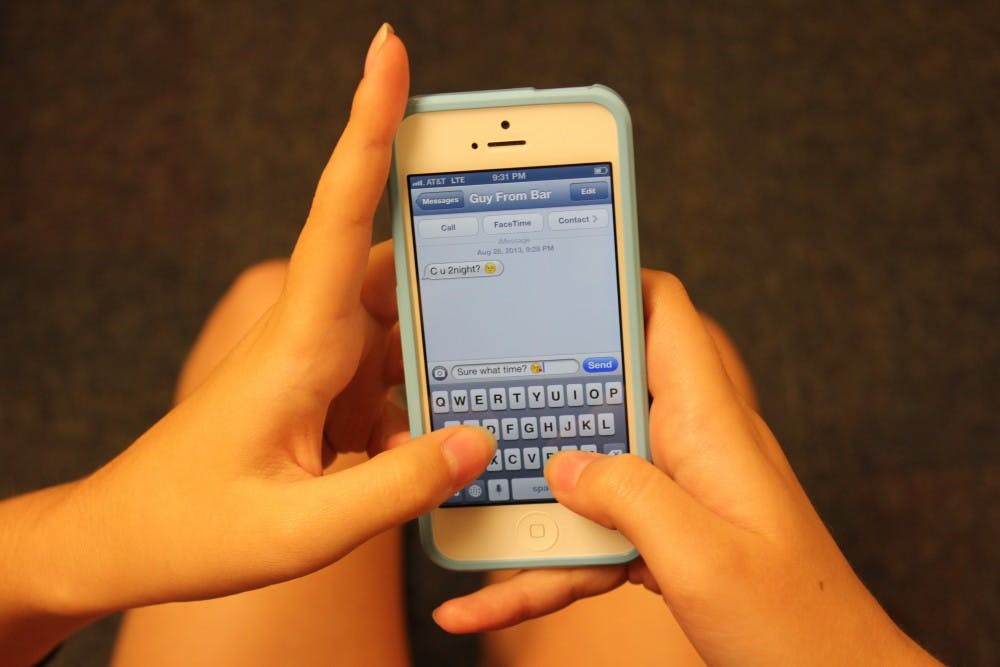It appears that the racy headlines may have gotten it wrong.
Earlier this month in New York City, a University of Portland student-and-professor team presented a study challenging the popular perception that U.S. college students are part of a “new and pervasive hookup culture.” Their research, which they presented at the American Sociological Association (ASA) conference, has garnered national attention.
The co-authors, UP sociology professor Martin Monto and recent 2013 UP alumna Anna Carey, used national survey data to test the notion that contemporary college students are having more casual sex than past generations.
“The short answer is no,” Monto said.
It’s more complicated than that, but the study’s findings – which threaten to deflate media-fueled alarm of sexualized college students – have won national attention and publicity. USA Today, The Guardian, TIME, The Huffington Post and numerous other news sources published articles on the study.
Using survey data of nearly 2,000 people from the General Social Survey, the study compares the sexual behaviors of 18 to 25-year-old college students from 2002 to 2010 versus those from 1988 to 1996.
Contrary to expectation, Monto and Carey's study finds that there has actually been a slight decrease in frequency of sex among college students in recent years, showing there is little evidence of a new “hookup culture” at all.
The study found that college students surveyed from 1988 to 1996 were slightly more likely to have sex weekly or more often, to have more than one sexual partner in a year and to report having more than two sexual partners after turning 18 than college students surveyed in 2002 to 2010.
This data challenges the perception that college campuses are newly hypersexualized environments.
Part of the problem, Monto said, is the vagueness of the term “hooking up.”
“It’s very ambiguous and very provocative,” said Monto. “It’s hard to know what it really means.”
Because the term “hooking up” has sexual connotations, it has become sensationalized, leading to the popular idea that sexual behavior is becoming more liberal. In reality, however, when someone says they hooked up with someone else, it can mean anything from a kiss to a sexual encounter.
The study does, however, suggest there has been a shift to the casual. Today’s college students are about 10 percent more likely to report having sex with a casual date or a friend, and less likely to be married or have a committed sexual partner.
Already submitted for peer-review, if the study holds up it could help debunk the myth of a modern hookup culture.
In spite of this far-reaching impact, the study has humble beginnings.
Carey, who graduated with bachelor’s degrees in sociology and psychology, explained how her personal experience shaped her interest in the hookup culture.
“The media portrays casual hookups as mainstream,” Carey said. “It gave me a skewed perception of college relationships.”
Carey’s concern deepened after reading “Hooking Up: Sex, Dating and Relationships on Campus” by Kathleen Bogle, an expert on the topic. Carey also attended the “Sex and the Soul” lecture given on campus in spring 2012 by religion and sexuality scholar Donna Freitas.
Brainstorming a topic for her senior thesis with Monto, who was both her adviser and capstone course professor, Carey settled on the topic of college hookups. Upon the submission of her thesis, Monto offered to help Carey make the paper ready for publication.
“I was just honored,” Carey said. “I took that as a huge compliment.”
Monto and Carey presented their paper together on Aug. 13 at the 108th ASA meeting in New York City, an experience Carey called “exhilarating.”
Neither author intends to continue researching the hookup culture, but both appreciate the impact their study may have.
“It shows that your senior thesis can matter,” Monto said. “If you do it right, you can actually affect the cultural dialogue on an issue.”








